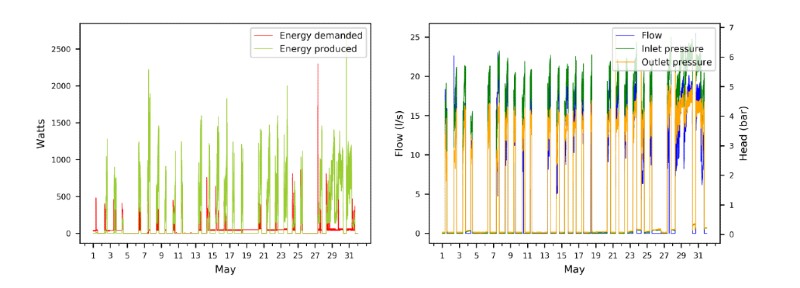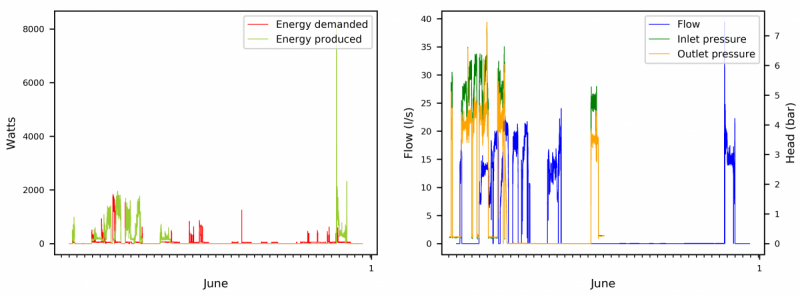Latest data from Spanish irrigation demonstration plant
Latest data from Spanish irrigation demonstration plant
Our Spanish pilot plant has prevented the emission of 100% greenhouse gases during its first operational irrigation campaign.
After the end of this season, the first results of the operation of the pilot plant, which has been running more than 2,442 hours during the months of the irrigation campaign (May-September), are being evaluated.
Results: May 2019
- Operation time: 420.4 hours
- Energy consumed: 39.8 kWh
- Diesel saved: 504.5 litres
- Economic savings: €388.5
- Environmental savings: 1.45 t eCO2

Results: June 2019
- Operation time: 383.3 hours
- Energy consumed: 38.7 kWh
- Diesel saved: 460 litres
- Economic savings: €354.2
- Environmental savings: 1.3 t eCO2

The total energy demanded by the fertigation plant, filters and solenoid valves has been estimated at 222 kWh and has been supplied entirely by the pilot plant. This consists of a pump running in reverse mode, that is, as a turbine, installed in a bypass system through which a certain flow and pressure is circulated. The generated energy has allowed a diesel generator group to be replaced, producing clean and sustainable energy through an innovative micro-hydroelectric technology.
The objective for this plant is to evaluate the economic, social and environmental impact of the recovery of hydroelectric energy in irrigation networks, contributing to mitigation of climate change and to meet the objectives of sustainable development and the circular economy. In its first year of operation, it has avoided the emission of 100% greenhouse gases that were previously associated with the generator group and has allowed an estimated economic savings of € 2,300.
This example of a pilot plant, located in the Calonge farm in Palma del Río (Córdoba), demonstrates the importance of promoting the use of renewable energy in the Andalusian irrigation to meet the increase in energy demand and its high cost for irrigators.

